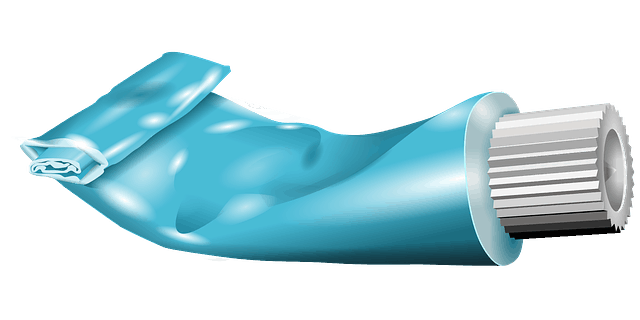Fluoride for Oral Health [7 Facts to Use it or Not?]
Last Updated on August 9, 2019 by Gio Greenard
The American Dental Association has assessed minimal risks with the use of fluoride in children under the age of 8. There is a small risk of them developing white spots on their teeth due to overconsumption of it. This is called mild fluorosis. Let then 2 percent of the cases cause any symptoms more severe than this. While mild fluorosis is a concern, poor oral cavity health is even more concerning. Cavities are the most common disease among both adults and children.

Contents
How Do Cavities Occur?
Cavities are a result of bacteria in the mouth producing acids and colonizing in the oral cavity. In order to strengthen teeth, fluoride-fortified toothpaste and water are used. This hardens the enamel and makes teeth resistant to the softening effects of acid. Children should brush twice a day to neutralize the acids and bacteria. Regularly consuming fluorinated water further reduces the risks of oral health problems.
Teach Your Children Proper Oral Health
In order to reduce the risks of mild fluorosis, parents should teach their children to spit out the toothpaste and never to swallow it. They can further reduce the risks by only using very small amounts of toothpaste and children’s toothpaste formulas that contain less fluoride. Babies can develop mild fluorosis if their baby formula is mixed with fluoridated water and they rely exclusively on formula. By using breast milk and mixing formula with bottled water, you can reduce the risks. We have a substantial page on oral health.
Fluoride in Public Water Supplies
Water is naturally fluorinated. The safe levels that are strictly established by the EPA remove any risk of toxicity even if you drink tap water throughout the day. Bathing teeth in the fluoridated water helps to harden them and poses no additional health risks. As stated, the primary health risks occur when children swallow toothpaste that is fluorinated.
Sugary Beverages
One of the worst things for your children to consume are sugary beverages. Excess consumption of sugar will not just put white spots on your teeth but will also lead to severe tooth decay. The acids in drinks like juices, colas, and even fruit punch soften the enamel and make it easier for cavities to form. And because the bacteria feed on saccharides (sugars), flooding your mouth with sugar is a surefire way to increase their numbers and the volume of acids they produce.
You should also be careful to instruct your children to never brush their teeth immediately after consuming acidic beverages. Yet, even water itself is very acidic. Switching to alkaline water that is pH balanced to reduce acidity can play an equally important role in preserving their enamel. In any regard, children should wait at least a half an hour before brushing to reduce the impact of bristles on the softened enamel of teeth bathed in acids and sugar.
The bleached white sugar that is commonly used in the United States is especially bad because it also softens the teeth with bleach. This chemical is caustic in high concentrations and contributes to the premature softening and wear of teeth.
Dry Mouth
Of the biggest dangers for children is dry mouth. Children who take medications for certain types of medical conditions, such as allergies, asthma, or seizures, are at higher risk of forming cavities. This is because they are not naturally producing enough saliva to wash away the biofilm as it forms.
The biofilm is a mix of bacteria and the soup of saccharides and minerals that they feed upon. If the biofilm is not fully removed and flushed away within 24 hours, it will leech minerals out of the saliva and form plaque along the gumline. When this occurs, the gums become inflamed, irritated, and may bleed during brushing.
The gums may also form pockets when your child develops a disorder called periodontitis. The first stages of periodontitis are gingivitis, the swollen gums and bleeding. The plaque that forms in these pockets is called tartar. It permanently irritates the gumline and creates chronic inflammation.
Once the plaque reaches below the gumline, it will start to deteriorate the roots of the tooth and the bone. The ultimate result is loose teeth that can fall out and possible root infections that require root canals.
Myths Regarding Fluorinated Water
There are many myths related to fluorinated water that can cause many people to fear it. One of the myths is that fluorinated water effects the pineal gland, an area of the brain that is sometimes referred to as the mind’s eye. It may play a part in helping us to visualize our thoughts and supposedly is affected by fluoridated water. These myths suggest that it is responsible for low IQ levels and ADHD in children.
Others suggest that fluoridation is part of a government mind-control agenda. The fluoridation is used to suppress natural thoughts and makes us more susceptible to persuasion of influence like the drug LSD. It is easy to see what the effects of too much of this element really has on the human body with medical and scientific studies.
If your dentist gives you a fluorinated gel to help harden areas that are susceptible to decay and showing signs of softening, you may feel nauseous if you take too much of the of it. This is also why children should be instructed to avoid swallowing toothpaste even if it tastes sweet because it will hurt their stomachs.
Conclusion on Fluoride
Although there is a lot of speculation regarding the ulterior motives, there is no reason to worry. Fluorinated water and toothpaste are safe and rarely cause any significant health concerns. The greater health concerns are dry mouth from medications, poor oral hygiene, consumption of sugary treats and beverages, and even the acidity of water and other drinks.
If you want to ensure the oral health of your children, you will teach them proper brushing habits. You can also reduce the risks of toxicity by monitoring their hygiene routines. Using the correct amount of toothpaste for the age of your child and teaching them how to rinse and floss are all critical to long-term oral care.
A FREE Consultation
Contact Dr. Panucci today for a consultation on orthodontic issues like straightening and perfecting your smile and oral health-related matters.
Like what you read? Comment below or CLICK on an APP LOGO to follow us and share the conversation
220 N. Aviation Blvd. Suite A
Manhattan Beach, CA 90266
Phone: (310) 379-0006
Fluoride for Oral Health [7 Facts to Use it or Not?]

Dr Patti Panucci attended the University of Louisville School of Dentistry for four years, where she graduated with a DMD degree (May 2000) among the Top 10 in her class. Following that, she headed west to Los Angeles to complete her three-year residency at one of the top-ranked orthodontic programs in the country – the University of Southern California.
Along with her certificate in orthodontics, Dr. Panucci earned a master’s degree in craniofacial biology. During those three years, she fell in love with Southern California beach life and decided that this was where her future lay.














Leave a Reply
Want to join the discussion?Feel free to contribute!